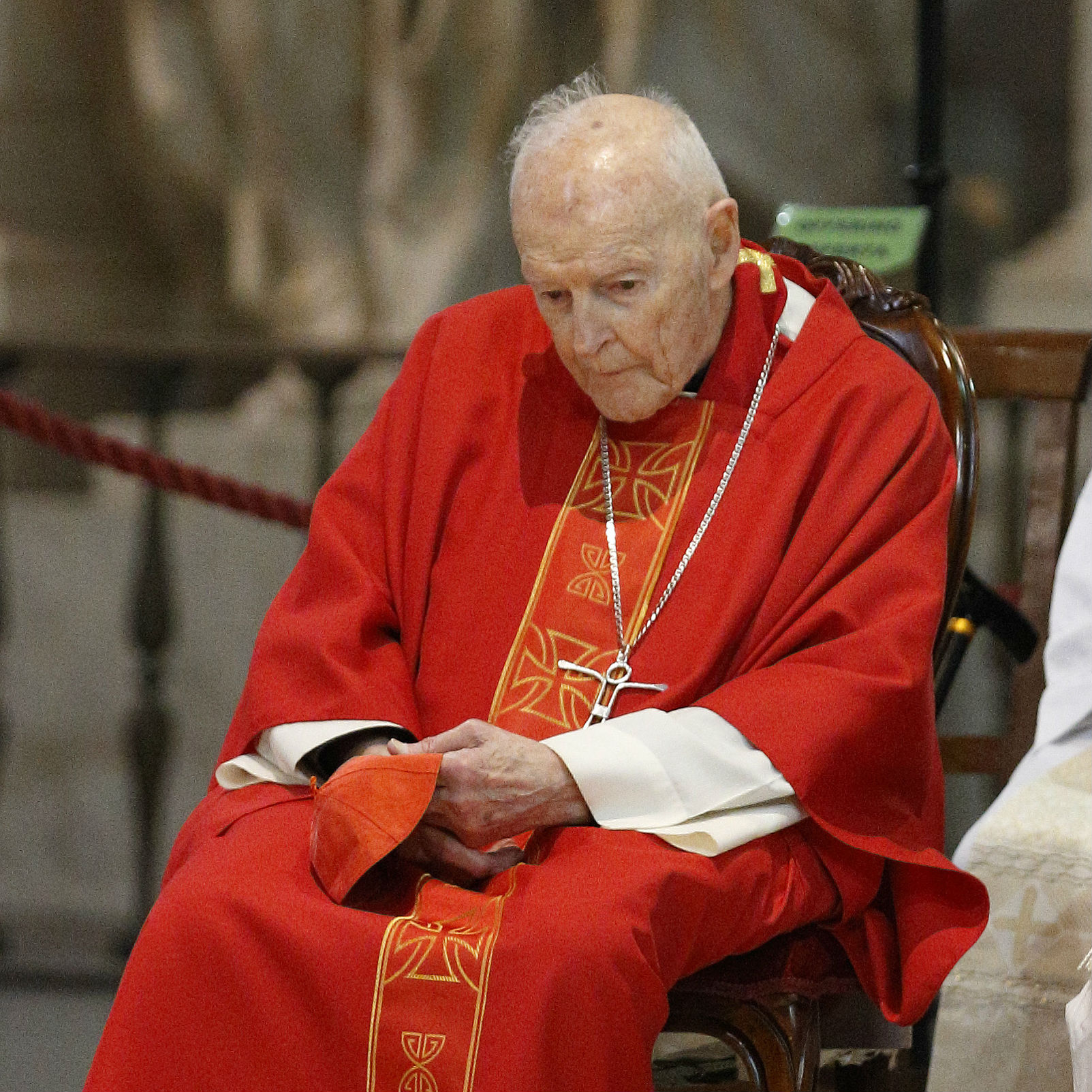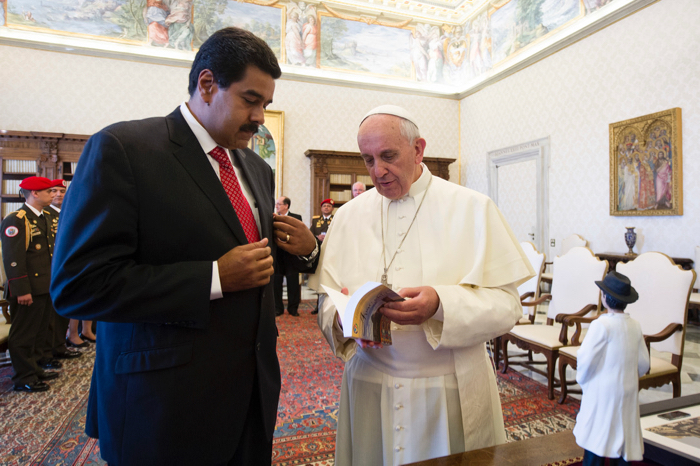Pope Francis has criticised the president of Venezuela for failing to follow through on pledges, and warned that the "common good" of the people must be a priority.
Nicolás Maduro has repeatedly asked the Holy See to mediate to help bring Venezuela's crisis to an end.
In the three page letter seen by the Italian newspaper Corriere della Sera, dated 7 February and signed "Francisco", the Pope says he is disappointed that previous pledges made by Maduro have not been followed by concrete action.
Replying to a request for mediation from Maduro, Corriere della Sera says the letter "clarifies what the Vatican Secretary of State, Cardinal Piero Parolin, meant when on 8 February he spoke of the 'positive neutrality' of the Holy See".
Pope Francis describes how there have been repeated requests by the regime for the Holy See to mediate in recent years. Unfortunately, none was successful "because what had been agreed in the meetings was not followed by concrete gestures to implement the agreements," Pope Francis writes.
Commitments made in writing were subsequently disregarded, he notes.
Pope Francis makes clear he supports mediation where "the different parties in conflict put the common good above any other interest and work for unity and peace".
Pope Francis refers to a letter from Cardinal Parolin dated as long ago as December 1, 2016 where the Holy See "clearly indicated what were the conditions for dialogue to be possible".
He also refers to "the suffering of the noble Venezuelan people, which seems to have no end".
The letter was sent just days after Pope Francis told journalists on the plane back from United Arab Emirates that he was willing to mediate between Venezuela’s President Nicolas Maduro and self-declared President Juan Guaidó, but only if both sides requested his help.
He confirmed then that Maduro had written a letter to him.
“I will read the letter and see what can be done, but the initial condition is that both sides ask for [mediation], we are willing.”
On 4 February, a joint statement from the Venezuelan bishops, the Conference of Religious and the National Council praised the opposition demonstrators, called for an end to repression and offered to distribute food aid through Caritas Venezuela.
Last week, Venezuelan soldiers were reported to have blocked a bridge on the border with Colombia ahead of a shipment of humanitarian aid from the US arranged by Guaidó, who declared himself interim president on 24 January.
He has since secured the backing of over 40 countries, including the US who stepped up their support on Tuesday by sending planes carrying humanitarian supplies to Colombia for distribution in neighbouring Venezuela.
Maduro has called on the military to turn back the US-backed aid, calling it a provocation designed to humiliate his country and his government.
Venezuela is in the midst of a humanitarian crisis. Inflation is at one million per cent and basic goods are unaffordable.



 Loading ...
Loading ...